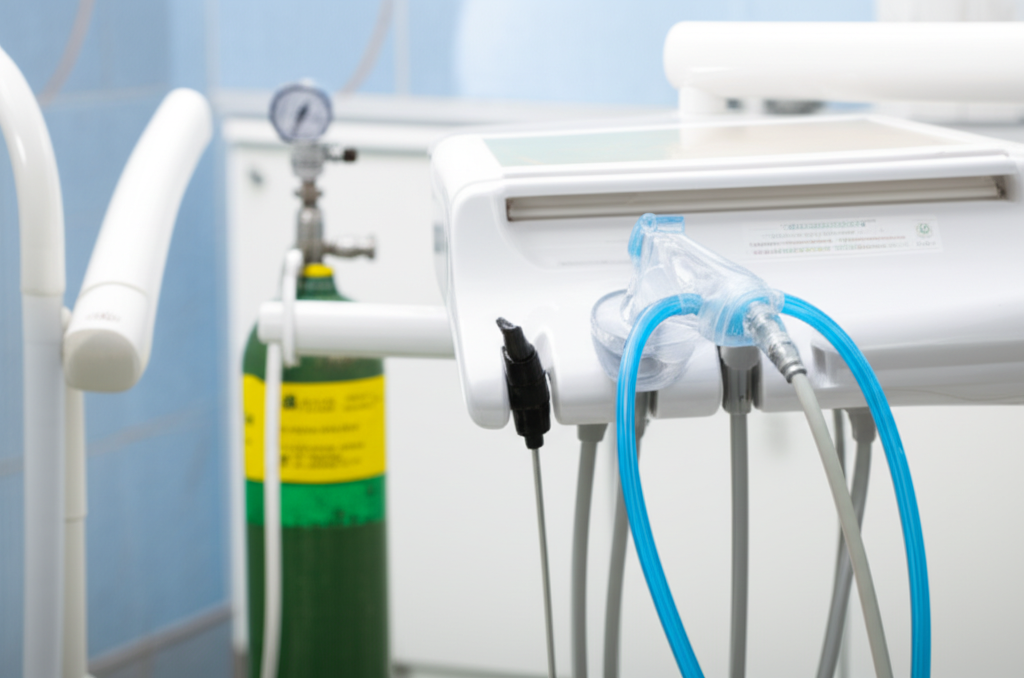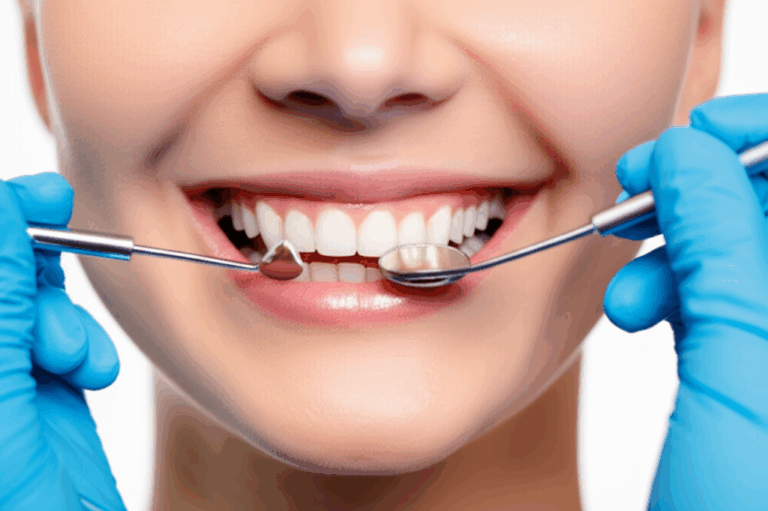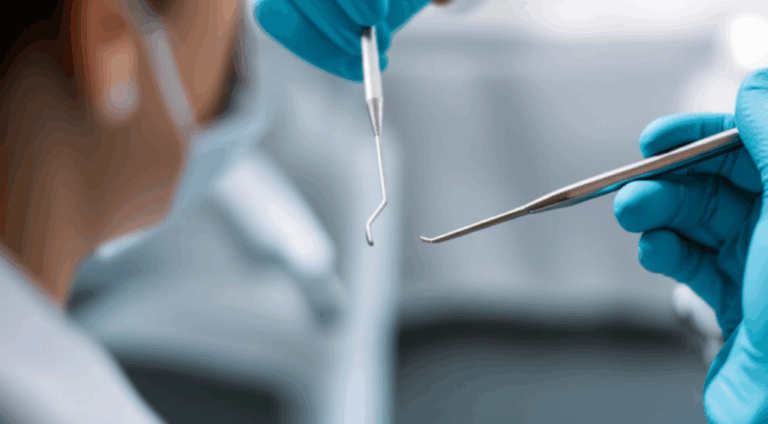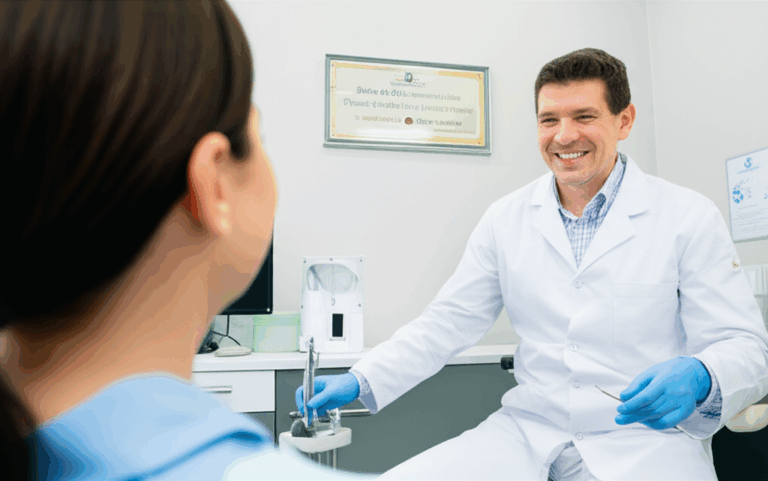
Laughing Gas at the Dentist: Your Complete, Compassionate Guide to Nitrous Oxide Sedation
Have you ever felt nervous—or really scared—about going to the dentist? Maybe your palms sweat, your heart pounds, or you find yourself skipping appointments. If so, you’re not alone. Maybe your dentist has said: “We offer laughing gas to help you relax.” But what is laughing gas, exactly? Is it safe? What does it feel like? And could it help you or your child get through dental visits with more comfort and less stress?
Let’s break it all down together. We’ll cut through the confusion and old stories, answer your biggest questions, and give you honest, clear advice so you know exactly what to expect—and how to talk to your dentist about trying it.
In This Article
- What Is Laughing Gas at the Dentist?
- How Does Laughing Gas Work?
- What Will I Feel With Laughing Gas? (Patient Experience)
- Benefits of Nitrous Oxide in Dentistry
- When Do Dentists Recommend Laughing Gas?
- Potential Side Effects and Risks
- Getting Ready for Your Appointment With Laughing Gas
- What Recovery Looks Like
- How Much Does Laughing Gas Cost?
- Laughing Gas vs. Other Dental Sedation Options
- Who Is a Good Candidate for Laughing Gas?
- Takeaway Tips: Your Healthy Smile Starts Here
What Is Laughing Gas at the Dentist? (The Relatable Hook & Simple Science)
Imagine sitting in the dental chair, feeling nervous while you wait for a shot or filling. Your dentist offers laughing gas, saying it’ll make things easier—but what is it, and will it really help?
Laughing gas—also called nitrous oxide—is a simple and safe way to help people relax during dental care. Dentists mix this colorless, faintly sweet-smelling gas with medical oxygen. You breathe it in through a small soft nose mask while staying awake and aware.
Nitrous oxide is one of the oldest and safest ways to calm people in dentistry. It’s been used for over a hundred years! It’s called “laughing gas” because some people, especially children, might feel happy or giggly while it’s working.
So, why do dentists use laughing gas? It works fast (in just minutes), helps you stop worrying, and you go back to feeling totally normal soon after your visit. It’s one of the mildest choices, so both kids and adults can use it for comfort without losing control.
How Does Laughing Gas Work? (Breaking Down the Science in Everyday Terms)
Let’s do a little science—but we’ll keep it easy.
When you put on the small nose mask, a set mix of laughing gas and oxygen comes through. You breathe normally, just like regular air. In a few minutes, the gas moves up to your brain where it works with your body’s nerves.
What happens next:
- Calms Nerves: Nitrous oxide helps parts of your brain tied to fear feel more relaxed—almost like a warm blanket for your mind.
- Raises Pain Tolerance: It dulls pain, so even if you need a shot or longer work done, things shouldn’t hurt as much.
- Quiets the Gag Reflex: If you usually have trouble with a sensitive throat, laughing gas can help calm it down.
- You Stay Awake: This isn’t like being put to sleep. You’ll be awake, hear the dentist, answer questions, and remember the visit.
Why “laughing” gas? Some people—especially kids—feel relaxed and might get a little giddy or want to laugh. Not everyone laughs, but you may feel dreamy, very chill, or floaty—like time slows down for a bit.
Quick turn-off: When your dentist turns off the gas and gives you just oxygen, the effects wear off in just 3–5 minutes. You’ll feel normal again before leaving the office.
Simple example: Laughing gas is like turning down the “anxiety dial” in your brain. It lowers fear and pain but doesn’t put you to sleep.
What Will I Feel With Laughing Gas? (Patient Experience)
Here’s what most people say it feels like:
- Lightheadedness: Your head might feel a bit lighter, almost as if a gentle cloud is resting on you.
- Tingling or Warmth: Sometimes your fingers, toes, or cheeks may tingle or feel a bit warm. It can be like your foot “falling asleep,” but not uncomfortable.
- Relaxation: A strong sense of calm can wash over you. Muscles relax, and worries shrink away.
- Floating or Dreaminess: Some people say it’s like floating gently in water—protected from stress.
- Possible Giddiness: Some people (kids mostly) get the giggles. Others just want to smile. You could notice sounds seem strange or the room spins a bit, but this goes away fast.
The important thing—You stay awake the whole time. You can talk, listen, and ask your dentist to pause any time. You may wonder afterward why you were worried at all.
How long does this last? It usually starts in a few minutes and ends just as fast after the gas is turned off. There’s no “hangover” feeling and most people return to normal soon.
Benefits of Nitrous Oxide in Dentistry (Why Dentists Love It)
Why do so many dental clinics pick nitrous oxide? Here’s why laughing gas is a top choice:
- Calms Nerves & Fear: It quickly stops dental worries.
- Helps with Pain: On its own, it won’t numb everything, but it makes sharp things hurt much less.
- Helps with Gag Reflex: If you’ve got a sensitive throat, laughing gas can calm it, making things easier for you and your dentist.
- Good for All Ages: Dentists use it safely with kids, grown-ups, and even people with certain special needs.
- You Stay In Control: You stay awake and can ask questions or get the dentist’s attention anytime.
- Usually No Need for a Ride: Unlike stronger sedation, laughing gas wears off fast enough that you can usually drive home yourself.
- Fast and Easy: Because it works and wears off quickly, you can get right back to your normal day.
When Do Dentists Recommend Laughing Gas? (Practical Guidance)
Dentists use laughing gas for many reasons. You may be a good fit if:
- You have dental fears or have skipped visits because of worry.
- You’re getting a filling, cleaning, or crown and want to feel calmer.
- You have a strong gag reflex that makes care tough.
- You dread needles or numbing shots.
- Your child is nervous, can’t sit still, or is new to the dentist.
- You have special needs or problems with other calming medicines.
- You’re looking at a long or tricky procedure and want a smoother time.
Some dental offices offer nitrous oxide for nearly all treatments, like fillings, cleanings for kids, or wisdom teeth out. Others offer it only when a patient asks for extra help with anxiety.
Potential Side Effects and Risks of Laughing Gas (The Honest Guide)
Every medicine, even gentle ones, can have effects. Laughing gas is very safe in a dentist’s hands—but it’s good to know what can happen.
Mild, Short-Lived Side Effects:
- Sick Stomach or Nausea: This is the most common, especially for kids or if you ate a heavy meal right before.
- Dizzy or Headache: You might feel dizzy just as the mask comes off, but this goes away fast and breathing oxygen after helps.
- Tingly or Numb: Some folks don’t mind it, but if it’s annoying, tell your dentist—they can turn it down or stop.
Rare but Important Risks:
- Too Much Gas: If you get too much, you might feel pretty out of it, but your dentist is always watching and can turn off or lower the gas right away.
- Allergic Reactions: Almost never happens, but always tell your dentist about past problems before using any sedation.
- Not Enough Oxygen: Modern machines mix in lots of oxygen and have safety features to avoid this.
Who Shouldn’t Get Laughing Gas?
Most people are fine, but a few should skip it:
- Pregnancy: Dentists don’t recommend it for pregnant people, especially early on.
- Breathing Problems: If you have bad lung disease or can’t breathe well through your nose, this might not work for you.
- Recent Eye Surgery: Some surgeries use gas bubbles that nitrous oxide could mess up.
- B12 Deficiency or Certain Medicines: Laughing gas can mess with some vitamin levels or mix badly with some meds. Always tell your dentist about your health and medicine.
- Some Mental Health Issues: People with severe psychiatric issues may need a different plan.
Tell the truth and ask questions. Your dentist should always check your health story and talk through worries before giving any sedation.
Getting Ready for Your Appointment With Laughing Gas
To have the easiest, safest, most relaxed dental visit possible:
Extra tip: If you’ve ever felt worried about privacy or being uncomfortable during a dental visit, nitrous oxide can help with that stress too. You’ll still be awake and clear through everything.
What Recovery Looks Like (Getting Back to Your Day)
Laughing gas leaves your system very quickly. Here’s what usually happens after:
- Breathing Pure Oxygen: When you’re done, you’ll breathe just oxygen through the same mask for a few minutes. This helps clear out the gas.
- Back to Normal: Most people feel like themselves again within five to ten minutes—no tiredness or fuzziness.
- Back to Life: You can usually drive, go to work or school, or do whatever you had planned that day.
- Special Instructions? Your dentist will let you know if you need to do anything special, especially after tough treatments.
If you don’t feel right—drink some water, relax, or ask for help. Most people bounce back quickly.
How Much Does Laughing Gas Cost? (The Straightforward Scoop)
Money matters!
Laughing gas at the dentist usually costs between $50 and $200 each visit. The price depends on:
- How Long Your Visit Is: A short filling costs less. A longer, harder job costs more.
- Where You Live: Big city offices often charge more than small-town ones.
- Will Insurance Help? Some dental plans pay for laughing gas, especially if you truly need it for anxiety or health reasons, but others don’t.
- All-in-One Pricing: Sometimes sedation is included in the price for the whole dental treatment. Always check how your dentist charges.
Tip: Ask for a clear price ahead of time. Your dental office can explain what you’ll pay before you come in—you have a right to know before your appointment.
Laughing Gas vs. Other Dental Sedation Options
Is laughing gas the only way to make dental visits less scary? Nope! Here’s how it compares to other choices:
1. Oral Sedation
- You take a pill before your visit (like Valium or something similar).
- Good: Stronger at stopping anxiety, lasts longer.
- Bad: Takes longer to wear off—you’ll need someone to drive you, and you might feel sleepy for a while.
2. IV Sedation
- Medicine goes into your vein to help you feel deeply relaxed or almost asleep.
- Good: Great for major dental work.
- Bad: You’ll need longer to recover, and can’t go home alone.
3. General Anesthesia
- Only for big surgery or really tough dental work.
- Good: No memory of anything.
- Bad: Higher risk, more doctors needed, and longer to get better.
4. Laughing Gas (Nitrous Oxide):
- Mildest, safest, and quickest.
- You stay awake, feel better in minutes, and can go home on your own.
Why do most clinics prefer laughing gas first?
- It balances comfort and safety, keeps you in control, and does not mess up your day.
- If you need a dental crown, bridge, or veneer, laughing gas can make that whole appointment—like those done at a crown and bridge lab or veneer lab—feel much easier.
If you need a stronger option, just let your dentist know what feels best for you.
Who Is a Good Candidate for Laughing Gas? (The Good Candidate Section)
Wondering if laughing gas is right for you or your child? Here’s what to think about:
Great Choices:
- Adults and kids with dental worry or fear
- Folks with a bad gag reflex or who struggle to get numb
- People who want to stay awake and aware
- Those who want to recover quickly, without needing a driver or a day off
Shouldn’t Use Laughing Gas:
- Pregnant people (especially in first three months)
- Anyone with bad lung problems or blocked nose
- People lacking vitamin B12, those who just had certain eye surgeries, or with really tricky mental health problems
- Anyone allergic or very sensitive to nitrous oxide (it’s rare, but can happen)
Always talk about these things with your dentist during your check-up. Even kids as little as four or five can use laughing gas safely, and it’s the go-to for over half of dental visits for kids who need a little help.
Takeaway Tips: Your Healthy Smile Starts Here (The Empowering Conclusion)
Let’s review the main things you learned about laughing gas and how it can help you have a better dental visit:
Key Points (Quick Summary):
- Laughing gas (nitrous oxide) is a tried-and-true, gentle way to manage dental anxiety for all ages.
- You stay awake and aware. It works fast and wears off quickly—no long tired feeling after.
- Most people feel calm, light, and happy, with only brief side effects.
- It’s affordable and quick, with fast recovery so you can usually go about your normal day.
- Dentists suggest it for fear, bad gag reflex, longer appointments, and with worried kids.
- Side effects are uncommon, and risks are lowest for healthy folks—but always give your dentist your full medical history.
- Not the only option. If you need something stronger, ask about oral or IV sedation.
What Should You Do Next?
- If you’re stressed about an upcoming dental visit, don’t keep it in. Tell your dentist you’re nervous and ask if laughing gas can help.
- Talk about your health and ask for a simple price before you start.
- For dental work like dentures, bridges, or implants made by a china dental lab, laughing gas can make long appointments so much easier.
- Parents: If your child is extra worried or won’t cooperate, laughing gas is a safe, gentle way to help them get the care they need.
- Never be shy about asking questions. Your comfort, safety, and confidence are what matter.
A gentle dental visit is within reach for everyone. Whether you’re a nervous grown-up, a protective parent, or just want a smoother time at the dentist, laughing gas is a tool your dental team can use to help you relax, get care, and keep your smile healthy and bright.
Reviewed for accuracy and patient-friendliness by dental health experts.
For more about dental solutions and lab-made dental pieces, check out our digital dental lab services.
Take a deep breath. Relief, comfort, and a confident trip to the dentist are just a chat away.








